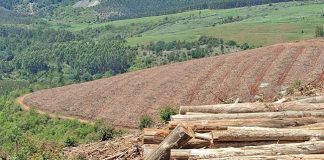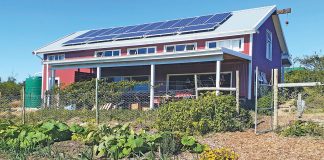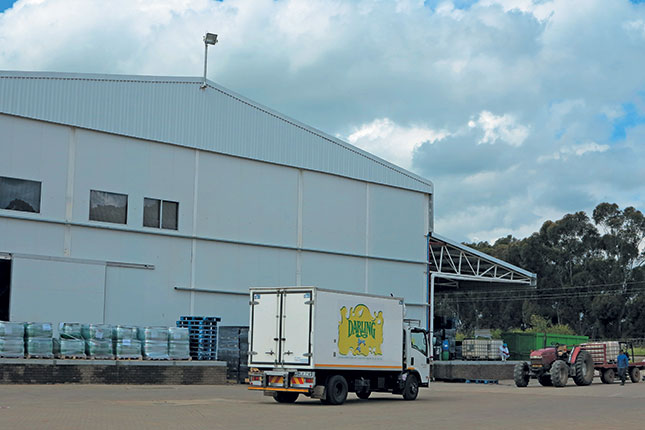
Nicolaas Basson, the fifth-generation NJ Basson, grew up on the family farm Alexanderfontein just outside Darling in the Western Cape. His father, NJ Basson Sr, bought the land in 1972 and started farming dairy with Holsteins, swiftly increasing his herd to above-average size for the area. He also planted vineyards and olives, a first for the area. Today Nicolaas’s wife, Roleen, has an olive business, while his younger brother, Theo, and wife, Belinda, run a high-quality wine business.
He also planted vineyards and olives, a first for the area. Today Nicolaas’s wife, Roleen, has an olive business, while his younger brother, Theo, and wife, Belinda, run a high-quality wine business.
“My father was a real entrepreneur – always more interested in business and numbers than hands-on farming. Supported by my mother, Christel, he quickly became involved in the wider dairy industry,” recalls Nicolaas.
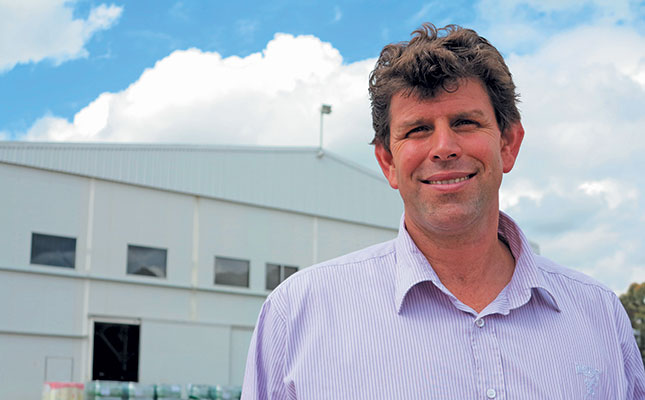
Things changed dramatically in the late 1980s when interest rates topped 25%. Nicolaas Sr had not yet finished repaying the loan he had taken to buy the farm, and he was simply unable to afford the interest.
“By late 1991, my dad was bankrupt,” says Nicolaas, who was studying accountancy and economics at Stellenbosch University at the time.
At that stage, Nicolaas Sr had between 150 and 200 cattle that produced 3 000ℓ milk a day. He told his sons they had a choice: either they sold the farm, or they entered the market and started selling their milk themselves – for a better price. The brothers chose the second option.
New beginnings
Finally, the day came when the Bonita milk tanker made its last visit to the farm. “It was a dramatic cut off,” recalls Nicolaas. “My father bought a second-hand filler and pump, which we still have, to fill milk bottles. I took an open bakkie in the mornings to sell milk in Atlantis for cash. That first day, I sold six 1ℓ bottles of milk.”
Nicolaas Sr, meanwhile, took the bulk milk to a cheese factory in Cape Town – and so Darling Creamery was born.
There were five staff members. Nicolaas Sr oversaw the business and Christel did the bookkeeping. Theo took care of the farming, Nicolaas the selling and Elizabeth Hansen the milking and the filling of the bottles.
“Elizabeth was in her teens at the time, and left school to help support her family. Twenty-six years later she’s still at Darling Creamery and is now a shift manager,” says Nicolaas.
His mother designed the company logo, which remains unchanged to this day. The flower featured in the logo is the blou pypie. It grew on the family’s original farm, Brakfontein, and is also found on Alexanderfontein.
“You have to look carefully for it and it grows alone,” says Nicolaas.
For him, it symbolises the family’s journey – “not going with the current trend but always the pioneer, trying something different”.
There are two kinds of businesspeople, he explains: the planner who has to have everything right on paper first and the visionary, like his father.
“He could stand at Point A and see Point Z, and he just knew he had to get there,” says Nicolaas. “He knew the doors would open and the bridges would be crossed, but he never planned B to Y, only A to Z. He had a beginning and a vision, and he followed his gut.
“Sometimes the toughest thing is overcoming your fear and just doing it.”
Full circle
Nicolaas recalls that when his father was a dairy farmer he became involved with the local co-op, which only made butter.
“Currently, we don’t do butter, but I want to have Darling Butter on the market soon. There’s a portion of sentiment about this, but it’s also about good business. Darling Butter will complete the circle, taking us back where we started. Only now we’re a private company and not part of a co-op.”
He stresses that the benefit of being private is that the owner can make decisions as he sees fit, and take advantage of opportunities as they arise. Also the business does not become paralysed by ongoing meetings.
Currently, Darling Creamery has about 300 product lines – including yogurts and juices – and processes approximately 200 000ℓ of milk a day.
“We source all our milk from farmers in the Western Cape and have about 15 suppliers,” says Nicolaas.
Six bulk tankers collect milk from the suppliers. Also in the trucking fleet are 44 refrigerated delivery trucks.
“Sometimes suppliers come to see us and sometimes we go to the market to source new suppliers. It all depends on demand and supply.”
Trust, not contracts
Suppliers must be able to comply with the company’s strict standards. Thereafter, good relationships are built up. “We have suppliers who’ve been with us for decades and we value the relationships, which are honest and fair,” says Nicolaas. “But suppliers must stay with Darling Creamery because they want to, not because they have to. So we pay a market-related price that’s profitable, and worth the effort for farmers. This is the beauty of the free market.”
Every aspect of the business is built on trust.
“We don’t have contracts with anyone – not with suppliers, dairy farmers or clients. There are no signatures, not one contract,” says Nicolaas. “Yes is yes, and no is no. We discuss, disagree, find a solution and then move on to keep life simple.”
He quotes his father’s philosophy on this: “Honest people don’t need a contract, and a contract won’t curb dishonest people, so what’s the point?”
Another core business principle, Nicolaas stresses, is to remember that they are selling food first and profits come second.
“Profits are a result, not the core focus. That’s why we have a customer care line and a call centre that takes over 1 000 calls a day. You have to talk to people.”
A third principle and key to the company’s success is hiring the right people.
“This is a constant challenge, because the business is not as much about the numbers and products as it is about the people.”
Expansion phase
Darling Creamery has gone through three phases. In the first, Nicolaas Sr oversaw the company’s survival. After this came a shift from one person making all the decisions to a management team. The third phase involves expanding the operation.
Darling Creamery employs a staff of about 500, many of whom have been with the company since the beginning.
“It’s a case of managing the chaos,” says Nicolaas. “My approach is to decide what’s the most important and spend energy on that, because you can’t sort out all the problems at once.”
Principles, people and products
Darling Creamery does not have a budget for projected growth for the year, preferring to focus primarily on product quality.
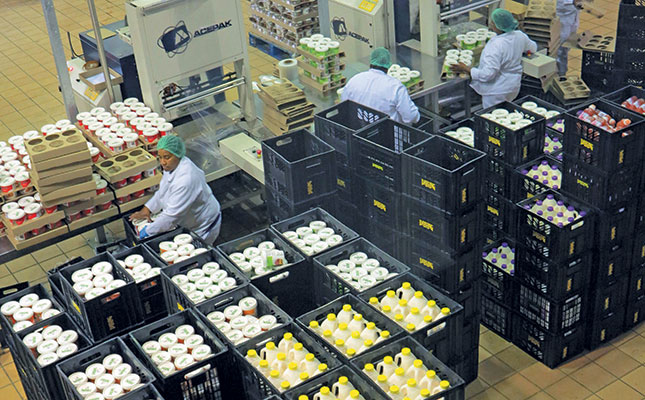
“We have a vision statement that everyone in the company understands, which is that we will not supply a product we’re not prepared to buy for our children,” says Nicolaas.
“We concentrate on the principles, the result will happen by itself. While numbers are not our primary focus, they are of course necessary for sustainability, and we seek to move forward consistently, with our focus on the solution, not the problem.”
Even more unusual is that Darling Creamery does no formal marketing.
“You won’t see Darling products advertised anywhere,” says Nicolaas. “Our people are our marketing.”
Phone Darling Creamery on 022 492 2206.












